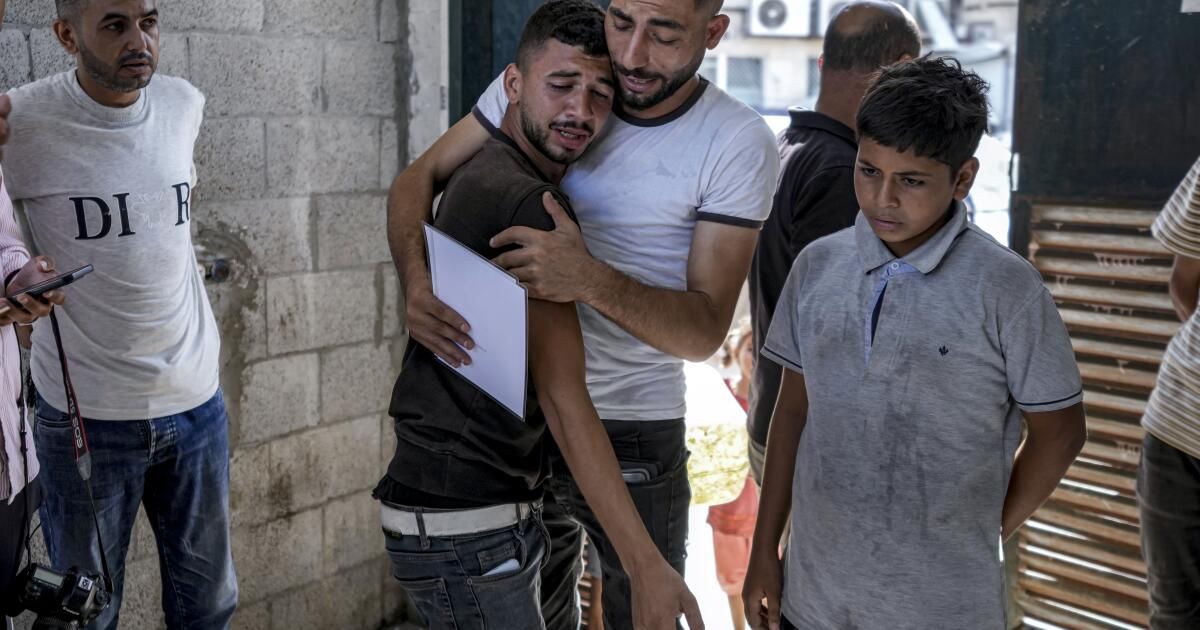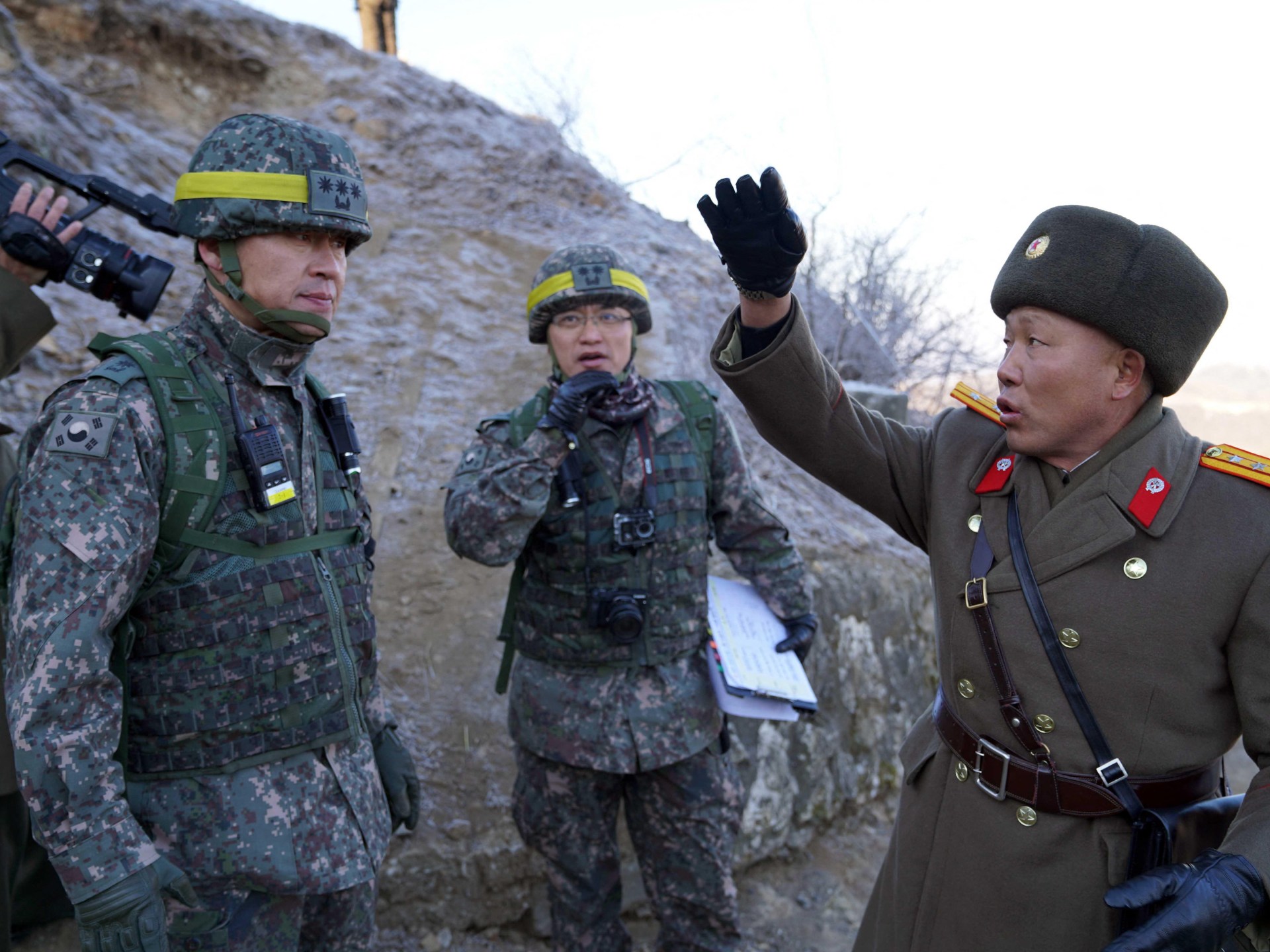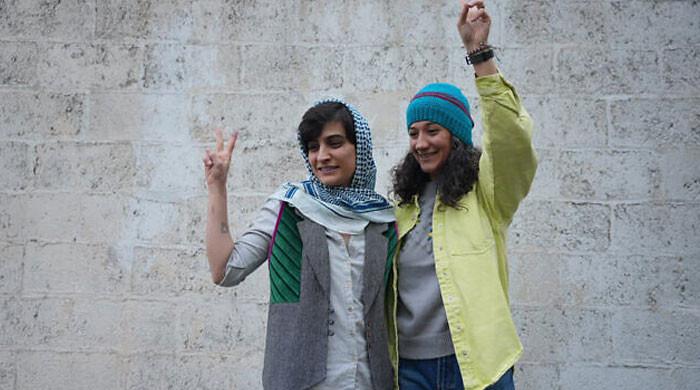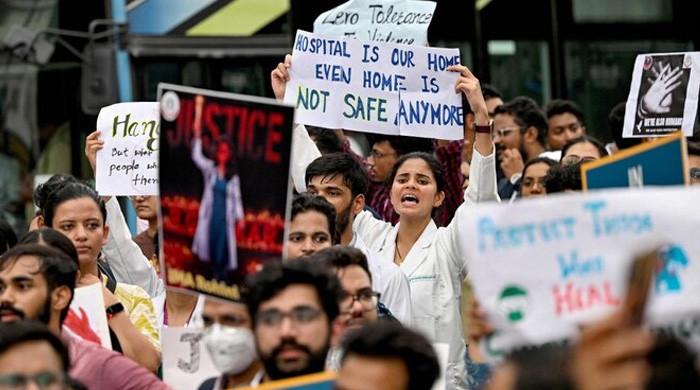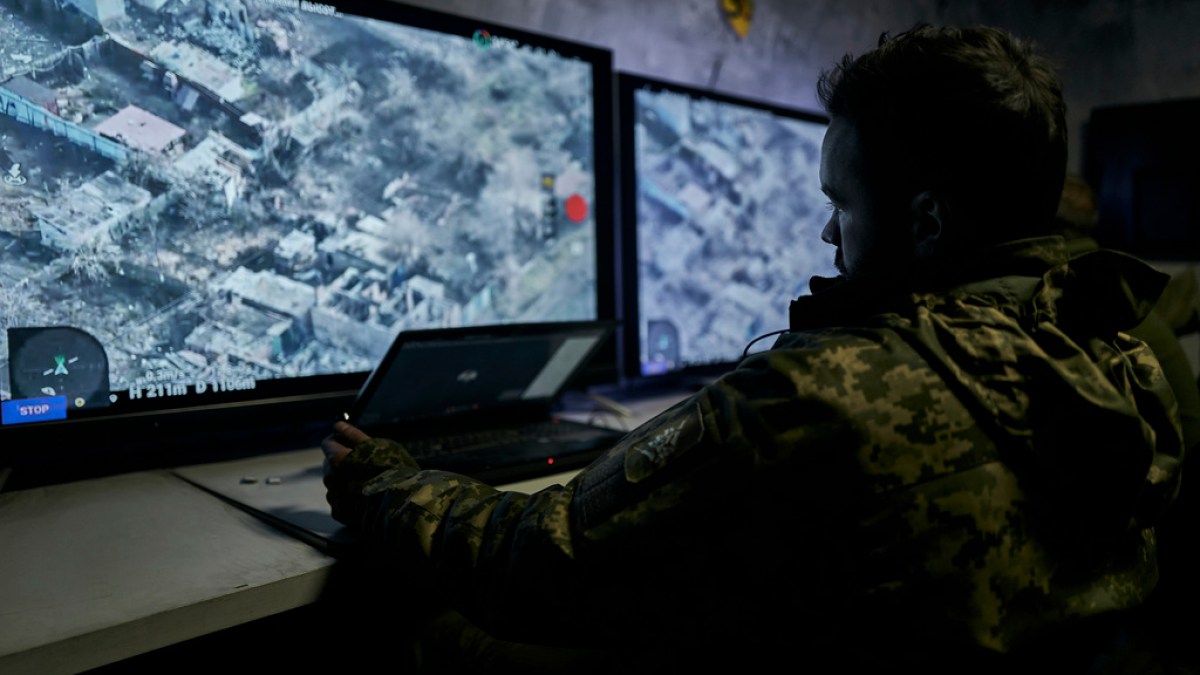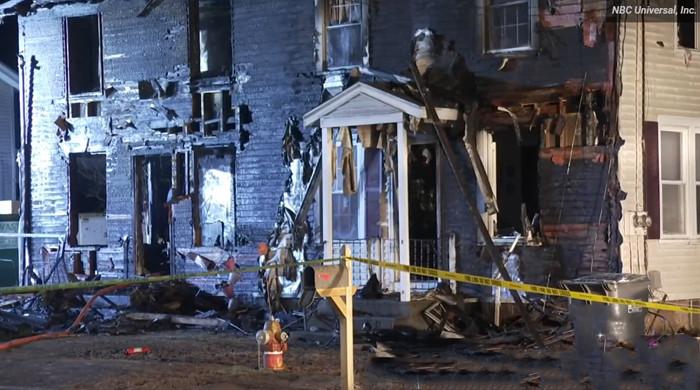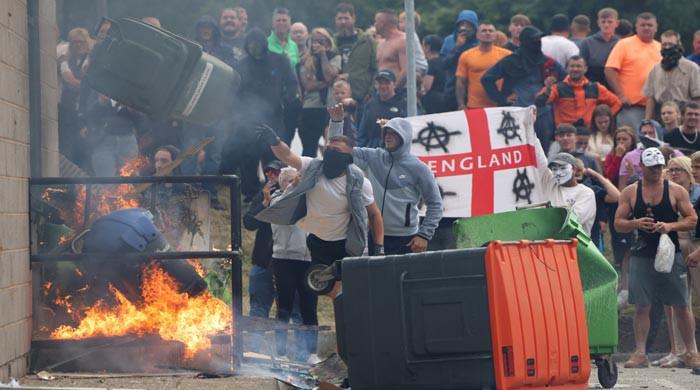Clutching the birth certificates of his four-day-old twins, Mohammad Abu Al-Qumsan pushed his way through the crowd surrounding the morgue at Gaza's Al-Aqsa Martyrs' Hospital and shouted to see his family one last time.
“I want to see my children. I beg you! I beg you!” he said in a video recorded by a local journalist and posted on social media. He eventually fainted in the arms of one of the men trying to comfort him.
On Tuesday morning, Abu Al-Qumsan left his apartment in Deir Al-Balah, Gaza, to register the births of his son, Asser, and daughter, Aysal, leaving them at home with his wife, Jumana, 28, and his mother, Arafa, friends told The Times.
He had the certificates in his hand, freshly laminated, when he received a phone call from a neighbour who told him that the apartment had been hit by an Israeli strike. His family had left.
“I didn't even have a chance to enjoy them,” Abu Al-Qumsan said in a text message to The Times on Tuesday.
The twins' deaths add to the shocking toll of 115 babies born and killed in the past 10 months, according to the Palestinian Ministry of Health in Gaza.
The Israel Defense Forces told The Times that “the IDF is not aware of the published details of the incident at this time.” Army officials said it “targets military targets only and employs various measures to minimize harm to civilians.”
Abu Al-Qumsan, who is unemployed but previously worked at a plastics supply company, and Jumana, a pharmacist who rose to become chief executive of Maxcare, a health and beauty company, married in July last year, friends say.
On October 7, Hamas militants attacked southern Israel, killing some 1,200 Israelis and kidnapping another 250. This prompted a fierce military response from Israel, which has so far killed nearly 40,000 Palestinians and left more than twice as many wounded, according to Palestinian officials.
About a month after the war began, Jumana conceived twins. The couple's married life became a series of displacements, fleeing from Gaza City to other parts of the enclave on instructions from the Israeli army to escape Israeli bombing.
They have settled into an apartment building in Deir Al-Balah, but Jumana is still worried, his friends say.
“I was very scared for them,” said Islam Hijazi, program director for HEAL Palestine, a charity that provided Jumana with prenatal care during the last three months of her pregnancy. “I was saying, ‘It’s better for them to stay in my womb. It’s very unsafe out here.’”
After Jumana gave birth to the twins via Caesarean section, she sent a voice message Monday night to local HEAL Palestine staff, thanking them for their help.
“The next morning, the entire staff gathered to listen to the recording,” Hijazi said. “Everyone was very happy.”
Then came the news of his murder.
“We were all in shock,” Hijazi said. “I couldn’t believe it was the same person whose voice we had heard a few hours earlier.”
The attack was one of several that killed at least 32 people that day, according to Palestinian counts.
Friends and colleagues said that, to their knowledge, neither Abu Al-Qumsan nor Jumana had any ties to Hamas or any other militant group operating in Gaza.
“There is no justification. None,” said Murad Matar, Jumana’s boss at Maxcare, who worked with her for three years and was friends with her and her husband. “The Israelis have all this technology. They target with artificial intelligence, they attack based on voice prints, on phone signals. Couldn’t they verify it? Why did they attack this family?”
Jumana announced the birth of the twins in a Facebook post on Sunday, responding to all the congratulatory messages she received, including one from her friend Rawand Emawi, who owns a beauty center in Gaza and saw Jumana frequently.
“There was not enough time to celebrate the occasion,” Emawi said. “Even the message in which I congratulated her turned into a message of condolences.”

